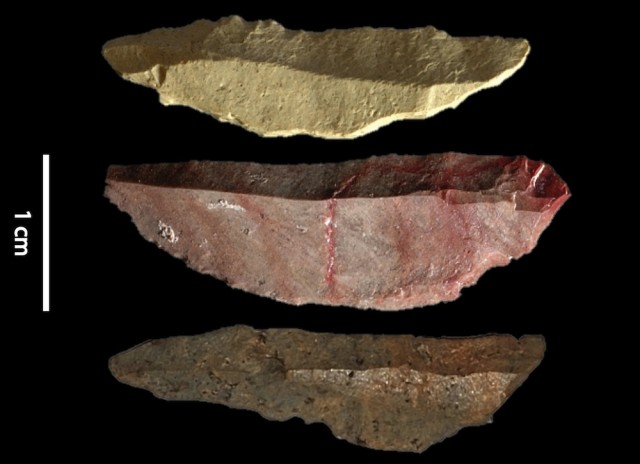
Simen Oestmo
Despite intense scientific inquiry, there are still major gaps in our knowledge about early human life. One major question that remains unanswered: when humans were first capable of complex cognition? In other words, when did early humans develop sophisticated cognitive abilities, such as prioritization and cultural transmission, that we would recognize today?
A new study in Nature addresses this; after six years of excavation, archaeologists have unearthed technologically-advanced stone tools that were created about 71,000 years ago. This finding enhances our knowledge about the history of human tool use, suggesting that sophisticated cognitive abilities were present relatively early in human history. It also raises the possibility that tools may have given early humans an advantage as they ventured out of Africa.
The ancient tools, called microliths, were found at a site called Pinnacle Point in South Africa. Microliths are small stone tools—less than 50mm in length—that are heat-treated and trimmed into specific shapes. The “bladelets” found at Pinnacle Point closely resemble tools from other sites that were used as the points of arrows and other compound projectile weapons. However, optical dating techniques suggest the Pinnacle Point tools are 6,000 to 10,000 years older than those found at other sites. So humans may have created and used bows and arrows earlier than previously thought.
Read 4 remaining paragraphs | Comments
DIGITAL JUICE
No comments:
Post a Comment
Thank's!